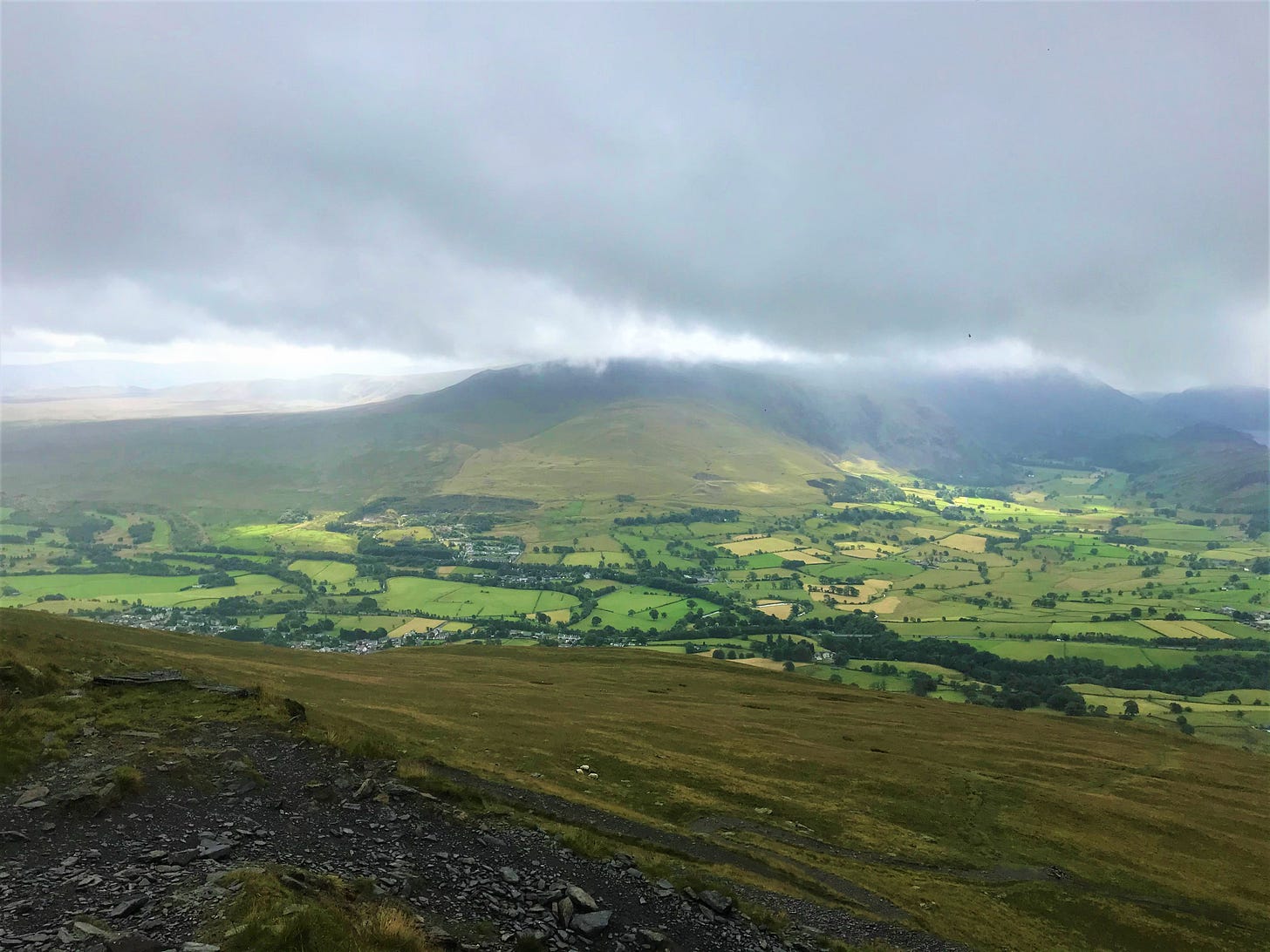Local history connects us with the past through place. It can be done in many forms but is usually the study of a town, village, or parish. The local must always be understood as a piece within the regional, national, and even international fabric. It is also made up of smaller parts such as individuals and families. Local history considers a particular place over a long span of the past, touching upon all kinds of themes and using a wide variety of sources.
At heart, local history is community history, a consideration of humans and our environments over time,
Local history has two essential ingredients – people and place. Together they have interacted to produce changing, but particular, historical experiences… In other words local history is primarily about the origin and growth of community, about how, why and when local communities changed.[1]
The Threlkeld Valley, Cumbria
Interest in the study of local communities developed across Britain during the early modern period by antiquarians interested in ancient artefacts, archaeology, topography, genealogy, and manuscripts. This was especially from the sixteenth century onwards with scholars like William Camden and William Dugdale in England. Local history was seen as a gentlemanly pursuit and was concerned primarily with things like the history of the local church, the manor, and elite families. The Society of Antiquaries was formed in London in 1717 and from the early nineteenth century came societies interested in the archaeology and antiquities of the counties of England. Many still operate today, publishing and providing events for members.
The Victoria County History (VCH) was founded in 1899 as a national project to write the history of every county in England down to parish level. The VCH continues to complete authoritative, encyclopaedic histories of each county, from the earliest archaeological records to the present day.
During the late nineteenth century the study of history developed and there was a shift from antiquarianism toward modern local history. In 1908 the first academic position in local history in Britain was awarded. Between the world wars local history was practiced academically by scholars whose interest in economic history led them to study places or regions in depth.
Local history in England took great steps forward in the years following the Second World War. The establishment of the Centre for English Local History at the University of Leicester around 1950 was a move toward local history becoming more formalised. In 1952 The Amateur Historian was set up. Renamed The Local Historian in 1968 it is the now the journal of the British Association for Local History (BALH).
The Local Historian. Volume 13, No. 7 (1979)
During the second half of the twentieth century local history became the pursuit of many amateurs. This was enabled by the improved access to resources by the establishment of county record offices, the provision of courses within university departments and adult education bodies as well as the formation of local history societies across Britain. In 1982 the Standing Conference for Local History (SCLH) became the British Association For Local History (BALH) supporting local history societies, individual local historians, and promoting the study of local history.
Local history continues to be a popular pastime across England down to the present day. As well as individual researchers there are many national and regional centres and associations, a wealth of publications every year, and numerous local societies all operating. Local history is an exciting way for anyone to study the past in its own right or in aid of academic, family, or house histories. Learn more about the practice of local history in England through the resources in this post.
References and Resources:
The Regional and Local History Research hub at the University of Hertfordshire offers postgraduate study opportunities and publishes academic studies of localities across England and Wales. University of Hertfordshire Press | University of Hertfordshire Press (herts.ac.uk)
The Local Population Studies Society (LPSS) is a charity devoted to promoting local history, social history, and historical demography in a local context. They publish the journal Local Population Studies, and other books and edited collections from time to time.
The Family and Community Historical Research Society (FACHRS) aims to promote and communicate research in family and community history, with a particular emphasis on the contribution of locally based micro-studies, especially through collaborative research.
Books:
Kate Tiller, English Local History: An Introduction (1994)
David Dymond, Researching and Writing History: A Guide for Local Historians (1999)
David Hey, Family History & Local History in England (1987)
Stuart A. Raymond, Researching Local History (2022)
W. G. Hoskins, Local History in England (1959)
W. G. Hoskins, The Making of the English Landscape and Local History in England (1954)
[1] Kate Tiller, English Local History: An Introduction (1994), 1.



